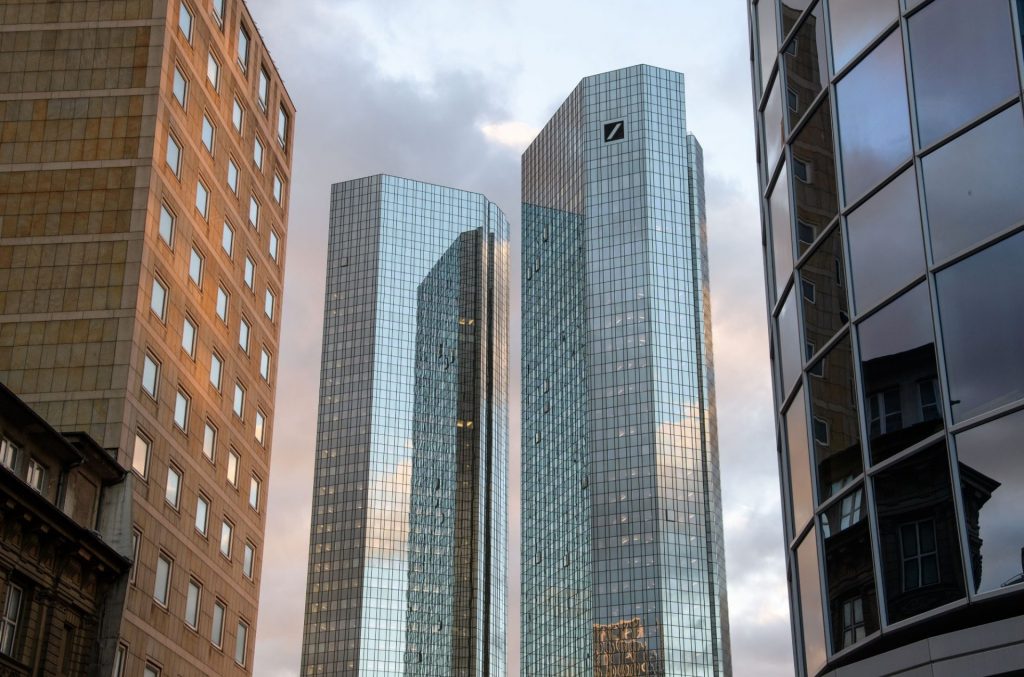The German vice-chancellor and minister for economic affairs had surprised onlookers by keeping his appointment to speak at the Web Summit tech conference in Lisbon the day before, even as the German coalition government collapsed and an early election date was set.
After dining with fellow ministers and tech industry leaders, trying to show that the industrial powerhouse of Germany was open to investment in digital tech, Robert Habeck needed to be back in Germany to meet with the chancellor. Instead, he was stuck on the tarmac. His government plane had broken down.
As a metaphor, it is almost painfully on the nose for the state of modern Germany. The country has been Europe’s economic powerhouse for decades off the back of its heavy industries, but growth has stalled – the country is in a protracted recession – and doesn’t seem to have a plan.
Politicians pay lip service to needing to attract new industries and to reform, but never seem to make it happen. Elites in Berlin and across regional capitals cling to the old mantra that to bet against Germany is to lose, but with increasing uncertainty: this time it might not just be an economic slowdown.
Germany is getting outpaced in heavy industry, its financial sector is beset with scandal, its digital tech scene is largely non-existent, and its political paralysis risks letting the far right into government in elections next year. Are Germany’s best days behind it?
There is no doubt that people have called the end of Germany’s boom times too early several times before. The powerhouse of the country’s economy has always been its heavy industry – primarily cars and chemicals – with a combination of making things efficiently and at very high quality generating significant growth, as well as skilled and well-paying jobs.
The country’s political system has worked in alignment with industry, prioritising careful economic management and disciplined domestic spending with an attitude that sees exporting goods almost as morally virtuous. To save and to export is divine – to borrow or to import sinful, as if the two were not simply opposite sides of the same transaction (and thus each is impossible without the other).
As with any economic boom based on just a small handful of industries, though, this kind of financial “miracle” works brilliantly until it doesn’t. Either the world moves on and newer industries become more lucrative and more significant than the ones you prioritise, or else another country becomes able to first challenge and then surpass your manufacturing capabilities.
Germany is facing off against both of those challenges at the same time: like most EU nations, Germany has no online-era tech giants of its own, and its startup scene is minimal. Petrol and diesel cars are being supplanted by electric cars, and Germany has been overtaken in manufacturing capabilities for these by China, after getting off to a very sluggish start by dismissing electric cars as a distraction.
Germany has battled the same economic headwinds as every other major economy: inflation in the wake of Russia’s invasion of Ukraine, an energy crisis for the same reason, and the knock-on effects of all of that. But Germany is the only G7 economy expected to shrink in 2024, and its hopes for growth rest on structural reforms its coalition government was too weak to agree. February’s elections have every chance of producing results that are if anything as divided and indecisive.
The received wisdom inside Germany is still that the country will recover, that downturns are just part of the economic cycle, and that this is something every nation has been through before and will go through again. But sceptics are starting to break into that consensus and receive more of a hearing.

One such voice is Wolfgang Münchau, the author of Kaput: The End of the German Miracle, who has argued for two decades that Germany’s good times will come to an economic end (he admits he called it a little early).
“I was looking at the whole specialisation on manufacturing industries, the lack of diversification, the fact that we know all the fortunes of the country hang on the car industry and the chemical industry and if ever anything happens to them, then you know the whole country is basically screwed,” he says.
Münchau’s thesis looks at German hostility to new industries – a sort of “not invented here” wariness of anything that doesn’t play to Germany’s traditional strengths, especially if it involves intangible products. As he tells it, the attitude is laced with a level of misogyny, as if some economic sectors are for “real men” and others simply are not.
“They thought that the internet was a toy for girls. Industry is very male in Germany, and it’s very much like… the internet and Hollywood… they couldn’t care less about that stuff. You could tell them that Hollywood is now an industry bigger than the car industry. They wouldn’t even listen
to you.
“I quoted in the book Ferdinand Piëch, this legendary VW boss, the godfather of the modern German car industry. And he said ‘there’s no space for electric cars in my garage’… and the electric car for the Germans, it was just a toy product.”
The UK might have self-sabotaged economically on a vast scale with Brexit, but its economy is based on financial services, law and professional services, being a European hub for US tech giants, and for a huge TV and movie production sector. In a 21st-century global economy – and with Trump set to impose tariffs on imports of physical goods to the world’s largest economy – would you rather have those industries, or an economy reliant on exporting diesel and petrol cars?
Germany is, of course, trying to diversify its economy beyond its core strengths, but this often proves much more difficult to do in theory than in practice. The business and political culture in Germany places a high value on consensus and collaboration. Unions work with industry (often taking seats on corporate boards), and both work with government.
Rocking the boat is viewed with deep suspicion. This has been framed as a strength in Germany’s good times – not least by my Germanophile colleague John Kampfner – but comes with its own downsides, especially in sectors Germany would like to grow.
On the international stage, Germany’s financial sector is viewed with deep suspicion – it is regarded as badly managed at best and corrupt at worst. Deutsche Bank was mired in a series of scandals involving money laundering, rate rigging, enabling tax evasion and more: clients turned away from other international banks would flock to DB, because it needed the money, and its domestic regulators were hesitant to take it on.
Germany’s one big tech unicorn was in the financial sector – the payments provider Wirecard, which collapsed after widespread and blatant fraud was exposed by the diligent work of the Financial Times. But the newspaper’s investigation was hampered at every turn by German authorities – who launched their first criminal investigation not into Wirecard, but into the FT’s reporters.
This insular economy-first political approach means that even some of Germany’s allies feel a degree of schadenfreude (Germany could have a booming export business in apposite words) at some of its misfortunes. Germany has long frustrated the US, UK and other allies with its vacillation towards Russia and China, the latter of which now threatens to supplant its car industry entirely.
In the interests of keeping its industrial sector booming, Germany turned a blind eye to Russia’s aggression, declined to boost its defence spending, and was caught having to transform its energy supply almost overnight after the invasion of Ukraine. Germany has similarly been dovish on China’s surveillance and intellectual property theft across Europe as it has sought deals and investment.
It is Greece, perhaps, that might have the most to complain about as to Germany’s tactics to promote its export economy. Usually, if a country is extremely good at producing good products at a reasonable price, its economy grows and its currency becomes stronger – which raises the relative price of those goods to other countries.
By convincing lots of its neighbours to join the Euro, despite the relative weakness of their own economies, Germany removed currency as a barrier to its exports: its own goods would not become more expensive even as its economy boomed.
Getting countries like Greece into the Euro involved wilful blindness to its economic realities and to its debt, but it financially benefited Germany enormously. When the inevitable collapse came, Greek politicians were apportioned all of the blame – not least by the Germans, whose opprobrium helped cover up their own almost equal culpability.
Germany had a great industrial economy, sure, but its politicians fiddled the rules of the game, playing EU politics in the most cynical of ways to keep the good times going by encouraging other European economies to roll up unsustainable debt. By never acknowledging that, nor having any internal reckoning over it, Germany’s head remained firmly in the sand as to why that miracle can’t simply be reignited in the 21st century.
There is a chance, of course, that Germany proves its naysayers wrong once again. After all, almost no major western economy has good economic growth. The only one that is actually growing well is the USA, and its people simply don’t believe those economic statistics reflect their lived reality – which is part of why they rejected Kamala Harris as president.
To bet against Germany has been a losing bet – but luck always changes, and it feels like that shift has come. The country seems to have the wrong industries at the wrong time, and will be particularly hammered by tariffs.
Its elections risk putting the far right into power, and if they are held at bay another weak government is likely to follow. Its financial or tech sectors are weak, and it will have to endure the geopolitical chaos Trump’s second term will bring just like the rest of us.
Germany’s plan to rebuild itself in the wake of reunification wasn’t flawless, but it worked for decades. That time is almost certainly over. How long until Germany admits that?




